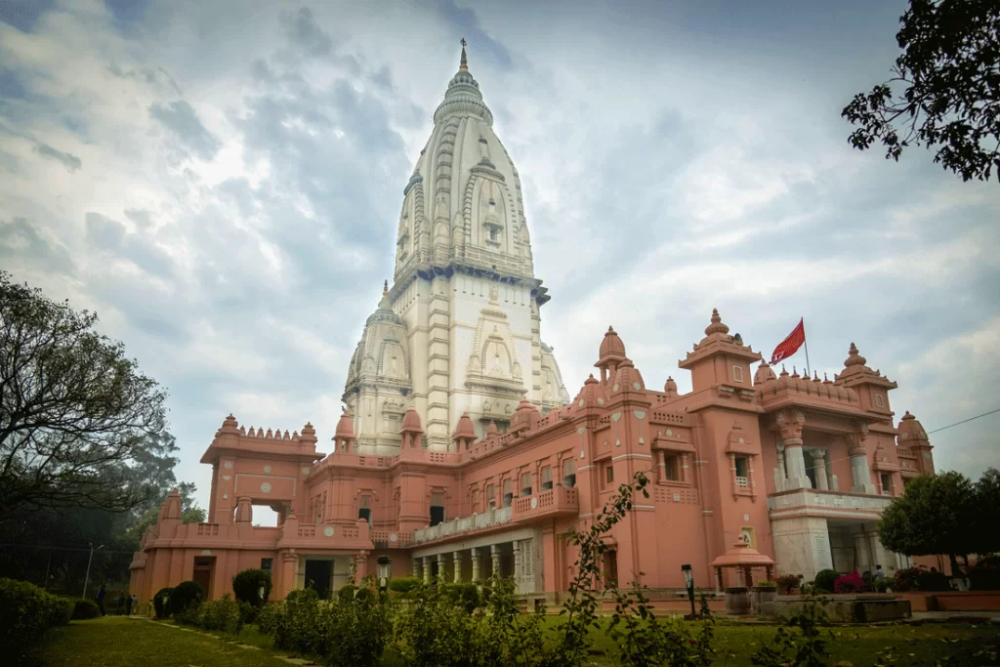

The New Vishwanath Temple, also known as Birla Mandir, is located in the heart of the cultural capital of India, Varanasi, Uttar Pradesh. It is a relatively modern temple that coexists with the ancient spirit of this timeless city. Built in the 20th century by the renowned Birla family, the New Vishwanath Temple is situated in the sprawling campus of Banaras Hindu University (BHU) and is open to people from all castes and religions. This inclusivity itself has been a significant pull for tourists globally, making the temple a contemporary pilgrim spot.
The temple's construction was planned by Pandit Madan Mohan Malaviya, the founder of BHU, and was completed in 1966. It takes inspiration from the historic Kashi Vishwanath Temple, which has been a major religious destination for centuries. While the old temple remains an important pilgrimage point, the New Vishwanath Temple stands as a symbol of the unity of man, highlighting the inclusive philosophy of Hinduism.
The architecture of the New Vishwanath Temple is intricate and reflects traditional Hindu temple architecture with a modern touch. It consists of seven separate temples within one complex. The grandeur and spirituality of the temple attract visitors and devout followers from all corners of the world, making it a significant contributor to the tourism and culture of Varanasi.
In recent years, there has been a shift in the kind of experiences tourists are seeking. Spiritual tourism is on the rise, with visitors looking to immerse themselves in the religious and cultural practices of the destinations they visit. Varanasi, being a religious hub, has seen a significant increase in travelers looking for spiritual enlightenment and peace.
Another trend is the growth of educational tourism. The New Vishwanath Temple, owing to its location within an esteemed educational institution like BHU, attracts academics, researchers, and students who not only come to seek blessings but also to observe and study the intersection of religion, culture, and education.
Sustainable tourism practices have also gained momentum. Tourists are becoming more conscious of their environmental footprint and seek to engage with communities in a way that supports local economies without compromising the integrity of sacred sites. The management at the New Vishwanath Temple has taken steps to ensure that temple protocols are in harmony with environmentally sustainable practices, thus aligning with the preferences of responsible travelers.
Varanasi continues to be a confluence of the old and new, tradition and modernity, with the New Vishwanath Temple (Birla Mandir) serving as a focal point for tourists who wish to delve deep into India's rich spiritual heritage while enjoying the comforts and educational pursuits of contemporary life.
With its ongoing relevance and the continued commitment to inclusivity, the New Vishwanath Temple is not just a beacon of spirituality but also a testament to the evolving patterns of tourism in India's religio-cultural landscape.